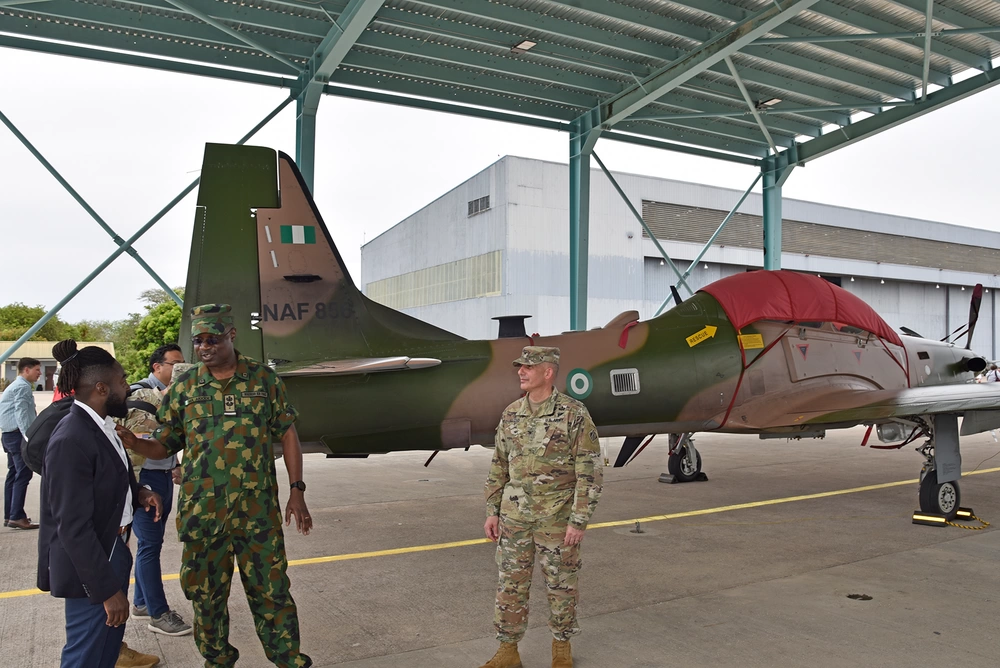ADF STAFF
In early May, workers completed a $38 million project to construct new facilities for the Nigerian Air Force’s (NAF) fleet of 12 A-29 Super Tucano light attack aircraft at Kainji Air Base.
Part of a joint $500 million project with the U.S. government, the facilities include a munition storage area with earth-covered magazines for secure storage capability, a munitions maintenance and assembly facility, new taxiway and cargo pad.
The team modernized a hangar with electrical capability needed to maintain the fleet, a renovated tire shop and battery room, mission planning and debriefing rooms, and a Battle Aviation Training Device.
Workers built miles of fencing around the base in Niger State and improved its entry points. The project includes training and long-term sustainment of the aircraft.
Since the first batch of A-29s arrived in 2021, they have helped Nigeria turn the tide against Boko Haram and the Islamic State West Africa Province (ISWAP) extremists, according to Air Marshal Isiaka Oladayo Amao, chief of staff of the Nigerian Air Force. They are used mainly for attacking enemy targets, intelligence gathering, surveillance and reconnaissance.
One of the most successful missions came in December 2022, when Super Tucano air strikes killed more than 200 Boko Haram terrorists and some ISWAP fighters in the Sambisa Forest.
Nigerian Minister of Information and Culture Lai Mohammed agreed that the aircraft were “game changers.”
“Most of the successes we have recorded in recent times is because of the acquisition of new platforms, not limited to the Super Tucano,” Mohammed told Nigerian online newspaper Premium Times.
The planes are a critical component to the NAF’s battle against insurgents, said Brig. Gen. Joel Safranek, director of the U.S. Air Force Life Cycle Management Center’s Air Force Security Assistance and Cooperation Directorate, which organized the security cooperation agreement.
“These new capabilities will help address the growing security challenges in the region, and counter the significant impact and threats posed to the people of Nigeria,” Safranek said. “It proves that together, as partner nations, and Military Allied Partners, we can accomplish great things which, in the end, make the country of Nigeria and the world a safer place.”
As construction of the facilities was completed, six additional NAF pilots finished training to fly the aircraft. They were the last in a batch of 24 pilots trained through the Super Tucano project.
The pilots should have no shortage of missions as terrorist attacks continue around the country.
In March, Boko Haram attackers killed 30 fishermen and farmers in Borno State. The following month, Boko Haram killed 11 people in Yobe State; 74 people were killed in two separate terrorist attacks in Benue State; and 33 people were killed during a terrorist attack in Kaduna State.

